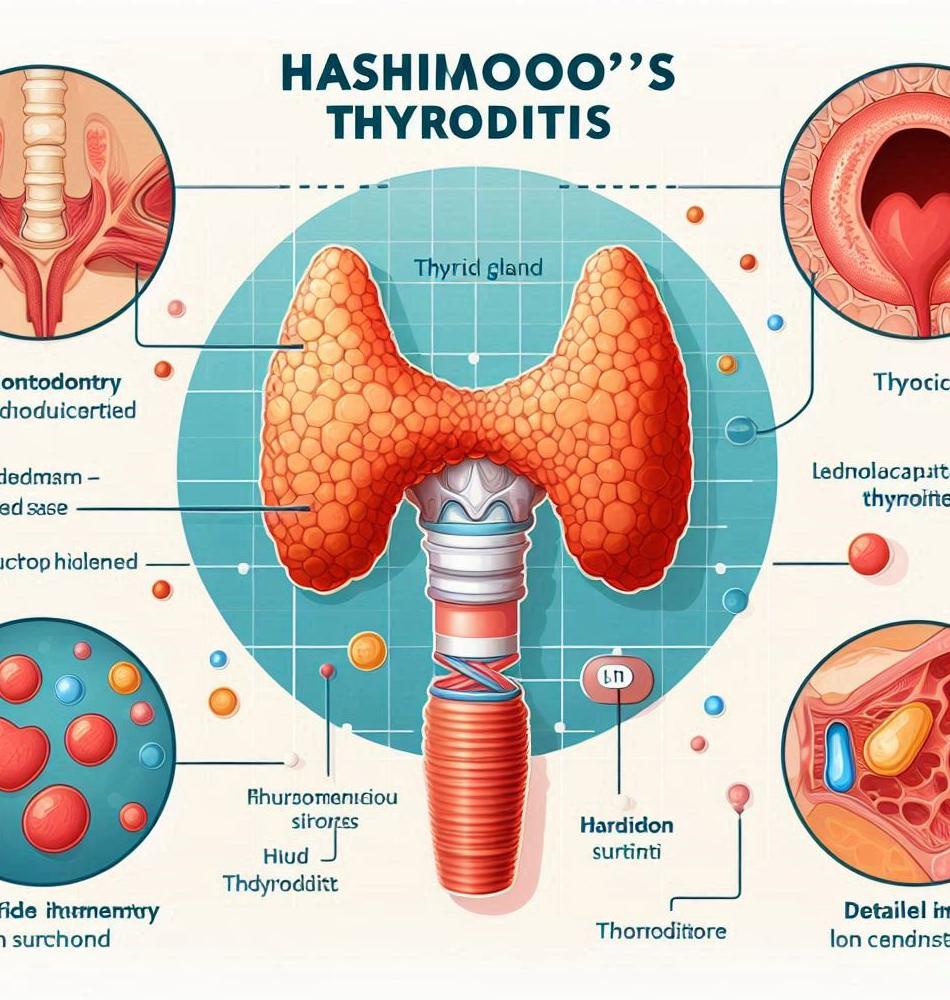Understanding Hashimoto's and Hypothyroidism: Which One Do You Have? 🔍
When it comes to thyroid health, many individuals find themselves grappling with a range of symptoms that can be confusing. The terms Hashimoto's disease and hypothyroidism are often used interchangeably, but they refer to distinct medical conditions that require careful consideration. With this guide, you’ll access the information necessary to understand your thyroid health better and possibly answer the question: do I have Hashimoto's or hypothyroidism?
The Thyroid Gland: A Brief Overview 🦋
The thyroid gland is a butterfly-shaped organ located at the base of your neck. It plays a vital role in regulating various bodily functions through the production of hormones, primarily Thyroxine (T4) and Triiodothyronine (T3). These hormones significantly influence your metabolism, energy levels, and overall health. When the thyroid malfunctions, it can lead to an array of health issues, including two prominent conditions: Hashimoto's disease and hypothyroidism.
What is Hypothyroidism? 📉
Hypothyroidism occurs when the thyroid gland does not produce enough hormones. It is a broad condition characterized by a deficiency in thyroid hormone levels, leading to a slowdown in metabolic processes. This can manifest through a variety of symptoms, which can significantly affect quality of life.
Common Symptoms of Hypothyroidism ⚠️
Recognizing the signs of hypothyroidism is crucial for prompt diagnosis and treatment. Here are some common symptoms:
- Fatigue and lethargy- Weight gain or difficulty losing weight- Cold intolerance- Dry skin and hair loss- Constipation- Depression and mood swings- Muscle weakness- Puffiness in the face or limbsHashimoto's Disease: An Autoimmune Condition 🛡️
Hashimoto's disease, also known as Hashimoto's thyroiditis, is an autoimmune condition wherein the immune system mistakenly attacks the thyroid gland. It is a common cause of hypothyroidism in many adults, especially women. The inflammation caused by this immune response can lead to reduced hormone production over time.
Identifying Hashimoto's Disease 🌡️
Hashimoto's disease can have overlapping symptoms with hypothyroidism, but there are distinguishing features and additional symptoms to consider:
- Swelling or enlargement of the thyroid gland (goiter)- Dry, itchy skin- Slow heart rate- Elevated cholesterol levels- Memory issues or brain fogDiagnosis: How Do You Tell the Difference? 🔬
To determine whether you have Hashimoto's or hypothyroidism, you must consult a healthcare provider. The diagnosis typically involves several blood tests to assess thyroid function and detect the presence of antibodies.
Essential Blood Tests for Diagnosis 🧪
The following tests are commonly performed for diagnosis:
1. **TSH (Thyroid-Stimulating Hormone)**: High levels can indicate hypothyroidism.2. **Free T4 and Free T3**: These tests measure circulating thyroid hormones.3. **Thyroid Antibodies**: The presence of antibodies like Anti-TPO or Anti-thyroglobulin suggests Hashimoto's disease.Managing Your Condition: Treatment Options 💊
Once diagnosed, both conditions can be managed effectively, although the treatment plans vary.
Treatment for Hypothyroidism 💡
Hypothyroidism is often treated with synthetic thyroid hormones, such as levothyroxine, which replaces the missing thyroid hormones, helping to restore metabolic balance.
Treatment for Hashimoto's Disease 🍏
- **Thyroid Hormone Replacement**: Like hypothyroidism, patients with Hashimoto's often require hormone replacement therapy.- **Diet and Lifestyle**: Adopting an anti-inflammatory diet rich in whole foods may help manage symptoms.- **Regular Monitoring**: Regular blood tests are crucial to monitor hormone levels and adjust medication as necessary.Frequently Asked Questions ❓
- What is the main difference between Hashimoto's and hypothyroidism?- Are Hashimoto's and hypothyroidism both treatable?- Can lifestyle changes affect Hashimoto's disease?- How often should I get my thyroid levels checked?- Is there a specific diet recommended for Hashimoto's disease?The Importance of Being Informed 🧠
Understanding the nuances between Hashimoto's disease and hypothyroidism can significantly impact your health journey. Knowledge is power, and awareness of your body's signals can lead to a timely diagnosis and effective treatment. If you suspect you are experiencing symptoms associated with these conditions, it is crucial to consult a healthcare professional.
Conclusion: Taking Control of Your Thyroid Health 🔑
In conclusion, distinguishing between Hashimoto's disease and hypothyroidism is essential for proper management and treatment. By understanding the symptoms, getting accurate diagnoses through blood tests, and adhering to a suitable treatment plan, individuals can take control of their thyroid health. Don’t hesitate to seek medical advice if you feel unsure about your condition. Remember, your health is your most important asset!
.png)






